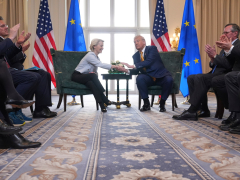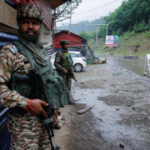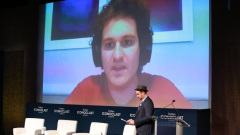Governments have been falling over one another to offer concessions to United States President Donald Trump as his August 1 tariff deadline looms. On Sunday, the US president scored his biggest victory to date, as European Union chief Ursula von der Leyen, like the leader of a vassal state paying homage to an emperor, travelled to Trump’s private golf course in Scotland to offer him tribute.
It came in the form of an entirely one-sided tariff pact in which Brussels accepted a huge tariff hike and pledged to spend hundreds of billions of dollars on US fossil fuels and military products.
The pact has changed the balance between two of the largest economic powers in the world. The EU has simply rolled over without a fight. French Prime Minister Francois Bayrou described it as a “dark day” for the union, while a European diplomat bemoaned by saying “those who don’t hang together get hanged separately.”
The economic impact on the rest of the world is likely to be worse still. Trump has declared economic war on friends and foes alike. Many countries are facing higher tariffs than the EU and are less capable of defending themselves. By giving in, Brussels has made it harder for other countries to stand firm.
A 40 percent tariff on Laos or 36 percent on Cambodia, for example, will be devastating to the export industries which US corporations encouraged them to build in recent decades. And without a united front, other countries are reluctantly coming to the table.
Last week, Trump announced a deal with the Philippines for 19 percent tariffs on all goods exported to the US and no tariffs on imported US goods; it was unclear if Manilla had fully agreed to the arrangement before the US president made it public. Indonesia’s deal is even worse, with the country forced to give up controls on its critical mineral exports and aspects of its emerging digital sector – both of which are critical to its economic development. For Brazil, US demands go beyond the economic realm, with Washington going as far as trying to interfere in the prosecution of former President Jair Bolsonaro.
While the provisions of different trade deals vary, they all follow the same strategy: Bullying g





